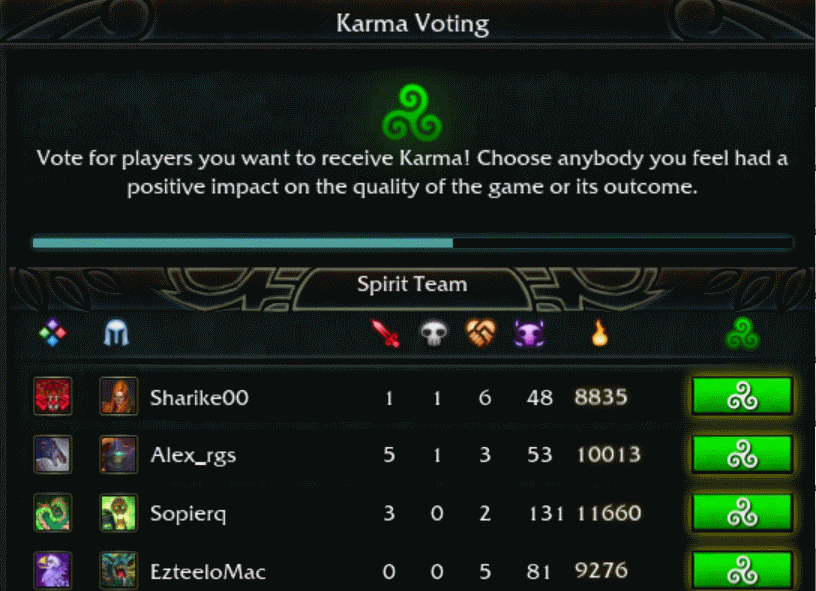Hands-on with MOBA Dawngate's closed beta
Dawngate. Another day, another MOBA, right? So why bother with this one? What does it do differently? What does it do better? Why play this over something else? I can't be the only gamer asking these questions, especially in such an oversaturated market, so I spent my weekend playing EA's Dawngate closed beta for that very reason. Here's how it all works.
When entering a match, you'll choose your character and then your preferred role to help coordinate with your group. This isn't just an "I'm going to jungle" icon; it actually provides you certain benefits for playing your role correctly. For example, a "hunter" does bonus damage to jungle NPCs and is healed for a portion of their total health after you kill them.
Controls and most of the basic play should be familiar to MOBA players. Spells, similar to summoner abilities, are chosen during the game itself, though, and you can pay a bit to change which abilities you have. This naturally opens some interesting tactics as the game progresses.
The game has a two-lane map, like League of Legends' Twisted Treeline. All players get wards as a basic ability, so there's no reason not to ward. Wells in the jungle seem more important than LoL's altars. They're not just a little bonus but a default source of money once the game starts, so taking an enemy's well is kind of a big deal.
Bindings (Dawngate's towers) used to respawn during the game, but apparently the devs believe comebacks and delays were detrimental to game play, which is unfortunate because it was originally a feature made to make the game stand out. At the moment, games tend to last between 20 minutes (when people start to surrender) and 40 minutes (a game with an actual conclusion). Many changes recently implemented were intended to reduce the time of matches, so assume that once you lose tempo in DG, it'll be hard to get it back. Striders, your heavy NPC support, gain power based on how many bindings have been destroyed in a lane and spawn faster when all the bindings in a lane have been destroyed. Killing the central boss mob, the "Parasite" that grows throughout the match, will increase the rate of your team's strider spawn.

The game's main objective, the opposing team's Guardian, has six "core" NPC guardians around him that grant him abilities. Killing a core takes away his ability until it respawns (about 6 minutes). It's certainly more interesting than the usual "smash it all" when you reach a base. There's red not to stand in, fire to move out of, projectiles to dodge... stuff you'd expect from a traditional if simple raid encounter.
Characters and skins, to me, are usually one of the big draws for MOBAs. However, many of DG's characters have the passive "pure shaper," which just means they don't use any resource for abilities other than cooldowns. I'm sure it's easier to balance, but it feels lazy.
The voice acting certainly sounds as if it was recorded on a budget; where it shines is in how it's used. Characters actually banter when they meet each other for the first time on a map. For example, when I was playing Kel, the sheep herder, someone's character asked if my sheep was... something that didn't sound English. My character just replied, "It's a sheep."

At the end of a game, you get a little vial that fills to show you what grade "chest" you get (obviously winning increases this). As you'd expect, the most common reward is currency. Next are "spirit stones" used to create your talent tree, which needs "spark stones" (also in chests), which add stats and perks to your loadout. These are what you'll probably be spending most of your currency on via the crafting mode. Additional characters as rewards are rare.

One interesting feature is "karma," which apparently comes from other players thinking you enhanced a match. In practice, people expect you to give it to everyone (allies and enemies). If someone was a jerk, people on both ends will mention denying that person karma. I wish more games would utilize this instead of an "MVP" voting system.
Sadly, the community is still a MOBA community. I specifically tested my weak area -- jungling -- to gauge the community. I warned my team ahead of time that I was new and asked for advice, but people still raged. There are helpful people, but they are the minority. As Massively's Patrick mentioned in his final Summoner's Guidebook, staying positive does help, but the karma system definitely doesn't fix everything.
Ultimately, Dawngate feels very similar to LoL, even with the two lanes. For a casual player, jungling was a bit easier to manage, and people need to react to ganks faster due to the smaller (feeling) map, but gameplay feels very familiar. I'd say the game plays like LoL but has the spirit of Prime World, being slightly more creative with the talent system than LoL but not as much as PW. If you like MOBAs in general but want a change of pace, Dawngate could be up your alley, but if you're just starting the genre or looking for a new take on it, I'd recommend looking elsewhere.


